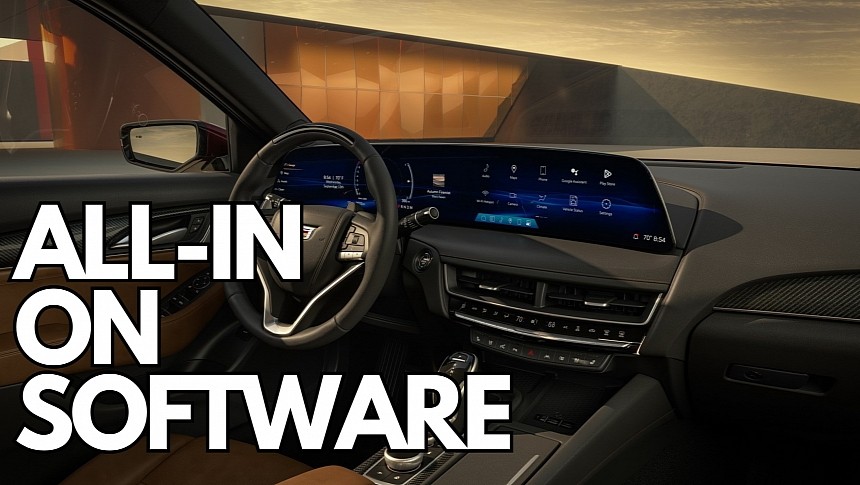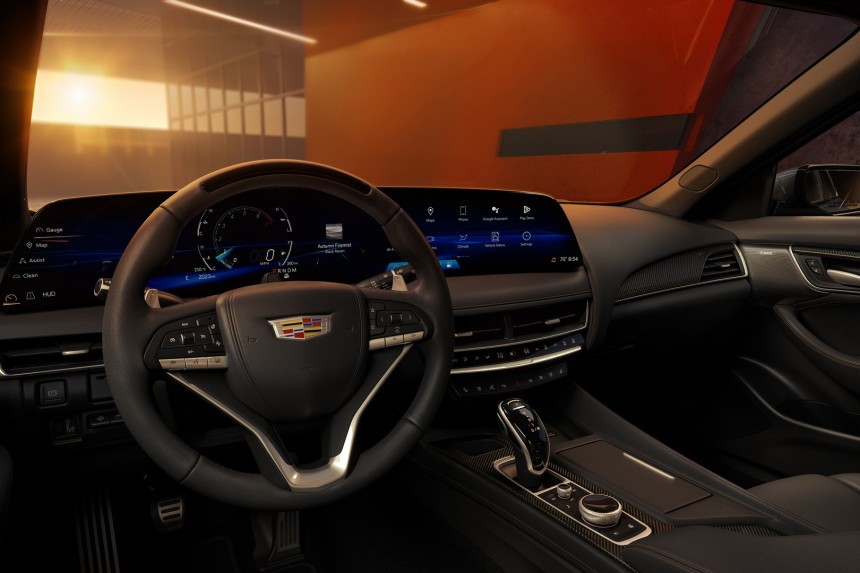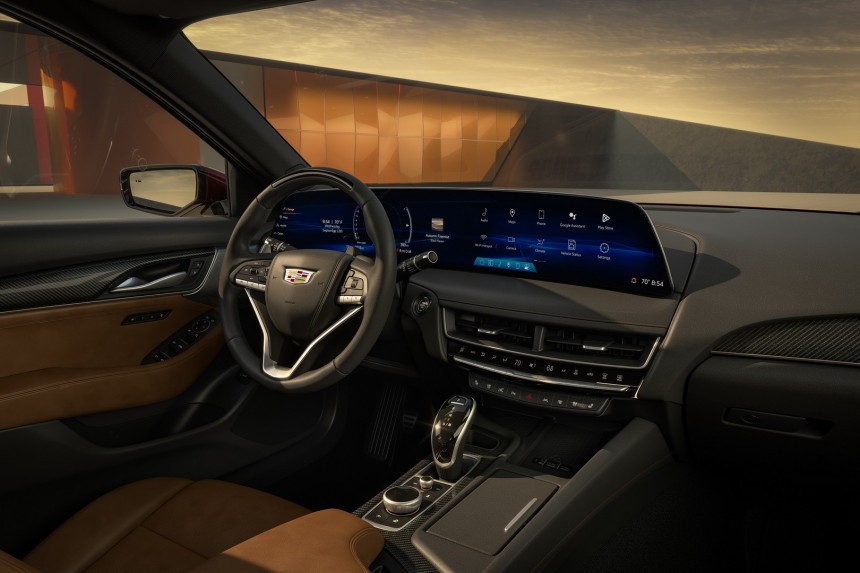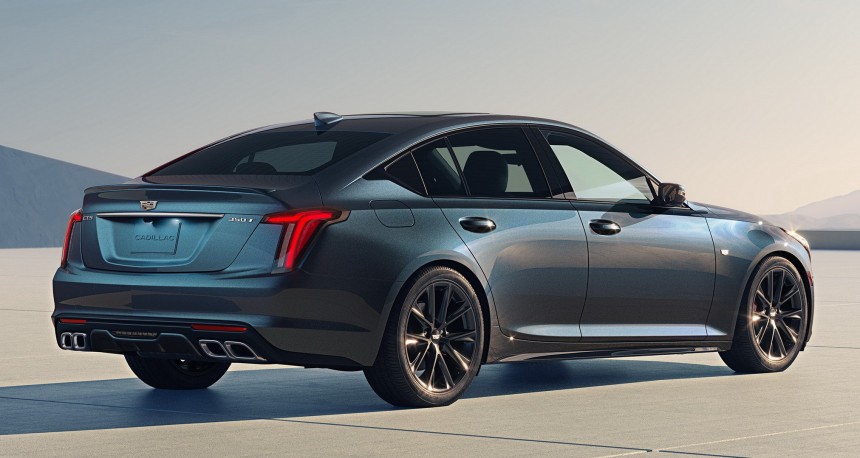General Motors has just announced a vehicle services definition baptized uServices and supposed to provide developers with the necessary API to build apps aimed at cars.
If the "developers, developers, developers" remark in the headline doesn't ring any bells to you, let me provide some context. It's a famous line belonging to former Microsoft CEO Steve Ballmer, who repeatedly shouted the same word over and over again during a company event to emphasize the need for app makers to support Windows.
Microsoft's operating system needed developers, so the company invested in tools and resources to make it easier for app makers to create tools for Windows.
Microsoft needed developers more than anything else – it's also why products like Windows Phone failed, as the platform lacked the apps to make an impact, eventually not convincing developers to build apps to expand its store.
General Motors is now in the exact same place. The company announced uProtocol earlier this year, the open-source protocol meant to power efficient vehicle software development. Now, it goes a step further with a complete API.
uServices, which will also be available as part of the Connected Vehicle Systems Alliance, also known as COVESA, puts General Motors at the forefront of the software revolution in cars.
uServices is a vehicle services definition that provides developers with the necessary resources to build car software. The interesting tidbit is that General Motors won't make the definition exclusive to its models. By submitting it to COVESA, which supports adopting open standards and tech for connected vehicles, GM encourages developers to build apps for any car on the road. And that's good for the industry and smart for General Motors, as developers would use its API to expand their focus in the automotive industry.
In an announcement today, General Motors emphasizes that its efforts to help build a bigger ecosystem started in April with the debut of uProtocol. The company says uProtocol helps "connect automotive applications and services everywhere, not just in GM products or in vehicles."
With uProtocol and uServices, General Motors supports the development of distributed software to be used in Software Defined Vehicles, also referred to as SDVs. Software Defined Vehicles particularly focus on the software experience offered to drivers, and General Motors is insisting on standardization to help expand the ecosystem, again not just its own but of the entire industry.
The carmaker announced earlier this year that it's giving up on Android Auto and CarPlay in future EVs, beginning with the 2024 Blazer. The transition was surprising, especially considering official statistics from Apple indicate that nearly eight in ten new-car buyers in the United States wouldn't get a vehicle without CarPlay.
General Motors explains that Android Auto and CarPlay offer a limited experience that can't expand beyond the connection between the phone and the head unit. The carmaker will adopt Android Automotive, promising more advanced capabilities powered by the deeper integration of the operating system in the vehicle.
Compared to Android Auto and CarPlay, Android Automotive is a fully featured operating system and does not require a mobile operating system to run. Android Auto and CarPlay can run on top of Android Automotive, with some carmakers, such as Polestar, already offering such functionality to drivers. General Motors doesn't currently plan to allow Android Auto and CarPlay in Android Automotive-powered vehicles.
The partnership with Google will specifically focus on the software capabilities offered in GM vehicles. The platform aligns with the new software push powered by uProtocol and uServices, with developers encouraged to help build an ecosystem that would eventually become available in more cars on the road.
General Motors plans to offer Android Automotive in all future EVs, limiting Android Auto and CarPlay to models with combustion engines. However, the carmaker already has a target of moving entirely to zero-emission vehicles by 2035, so in the long term, General Motors will go all-in on Android Automotive.
General Motors is also exploring other technologies that could help support its software push. In September, the company patented a new update mechanism that directly connects vehicles to distribute new software versions. The system works similarly to BitTorrent, with vehicles exchanging data as long as they are close to each other. With this idea, General Motors plans to become more relevant in the software push, where timely updates are critical.
OTA updates have been around for some time, and considering GM's strategy of bringing more developers to its playground, creating a solid platform to distribute new software versions is integral to the long-term strategy.
I'm leaving you with Steve Ballmer, the Microsoftie who knew precisely how important developers are for the long-term strategy of a company betting big on software.
Microsoft's operating system needed developers, so the company invested in tools and resources to make it easier for app makers to create tools for Windows.
Microsoft needed developers more than anything else – it's also why products like Windows Phone failed, as the platform lacked the apps to make an impact, eventually not convincing developers to build apps to expand its store.
General Motors is now in the exact same place. The company announced uProtocol earlier this year, the open-source protocol meant to power efficient vehicle software development. Now, it goes a step further with a complete API.
uServices is a vehicle services definition that provides developers with the necessary resources to build car software. The interesting tidbit is that General Motors won't make the definition exclusive to its models. By submitting it to COVESA, which supports adopting open standards and tech for connected vehicles, GM encourages developers to build apps for any car on the road. And that's good for the industry and smart for General Motors, as developers would use its API to expand their focus in the automotive industry.
In an announcement today, General Motors emphasizes that its efforts to help build a bigger ecosystem started in April with the debut of uProtocol. The company says uProtocol helps "connect automotive applications and services everywhere, not just in GM products or in vehicles."
With uProtocol and uServices, General Motors supports the development of distributed software to be used in Software Defined Vehicles, also referred to as SDVs. Software Defined Vehicles particularly focus on the software experience offered to drivers, and General Motors is insisting on standardization to help expand the ecosystem, again not just its own but of the entire industry.
The Android Automotive switch
General Motors has become increasingly focused on software in its vehicles as it embarks on a transition that has generated heavy criticism in its home market.The carmaker announced earlier this year that it's giving up on Android Auto and CarPlay in future EVs, beginning with the 2024 Blazer. The transition was surprising, especially considering official statistics from Apple indicate that nearly eight in ten new-car buyers in the United States wouldn't get a vehicle without CarPlay.
General Motors explains that Android Auto and CarPlay offer a limited experience that can't expand beyond the connection between the phone and the head unit. The carmaker will adopt Android Automotive, promising more advanced capabilities powered by the deeper integration of the operating system in the vehicle.
The partnership with Google will specifically focus on the software capabilities offered in GM vehicles. The platform aligns with the new software push powered by uProtocol and uServices, with developers encouraged to help build an ecosystem that would eventually become available in more cars on the road.
General Motors plans to offer Android Automotive in all future EVs, limiting Android Auto and CarPlay to models with combustion engines. However, the carmaker already has a target of moving entirely to zero-emission vehicles by 2035, so in the long term, General Motors will go all-in on Android Automotive.
OTA updates have been around for some time, and considering GM's strategy of bringing more developers to its playground, creating a solid platform to distribute new software versions is integral to the long-term strategy.
I'm leaving you with Steve Ballmer, the Microsoftie who knew precisely how important developers are for the long-term strategy of a company betting big on software.













